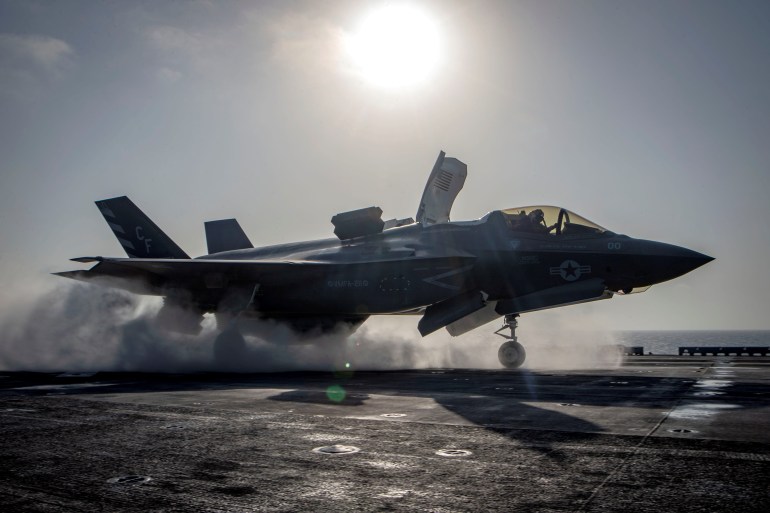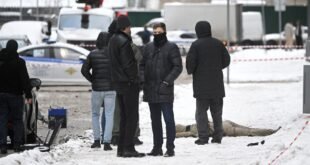Two members of the United States Navy have been arrested on charges that they provided military secrets to China, compromising national security.
Speaking at a press conference on Thursday, Assistant Attorney General for National Security Matt Olsen said his division would be “relentless” in pursuing accountability.
“Through the alleged crimes committed by these defendants, sensitive military information ended up in the hands of the People’s Republic of China,” he said.
Olsen added that China “stands apart” in the threat it poses to US security: “China is unrivaled in the audacity and range of its malign efforts to subvert our laws.”
The accused Navy service-members were identified as Jinchao Wei, also known by the first name Patrick, and 26-year-old Wenheng Zhao, who goes by Thomas.
The two sailors were involved in separate information-gathering operations while in the employment of the US Navy, according to the Department of Justice.

For Wei, the alleged conspiracy began in 2022, when he served as a machinist’s mate aboard the USS Essex, an amphibious assault ship.
In February of that year, he started to communicate with a Chinese intelligence officer who sought information about the Essex and other ships in the US Navy, according to prosecutors.
They accuse Wei of sending dozens of technical manuals and blueprints to the Chinese intelligence officer, revealing weapons systems and other “critical technology” used on board the ships.
Wei also took photos and videos of military equipment, according to the Justice Department.
In one case, the Chinese intelligence officer asked for information about an upcoming maritime warfare exercise involving US Marines. “In response to this request,” prosecutors wrote, “Wei sent multiple photographs of military equipment to the intelligence officer”.
Wei was ultimately charged with conspiracy to send national defence information to China.
The case against Petty Officer Zhao, meanwhile, hinges on bribes he allegedly took in exchange for sharing sensitive military information he had access to through his US security clearance.
In August 2021, the Justice Department alleges that a Chinese intelligence officer approached Zhao under the guise of working as a maritime economic researcher, seeking investment information.
Zhao is accused of taking photos and recording videos on the intelligence officer’s behalf. Among the information transmitted were the plans for a large-scale military exercise in the Indo-Pacific region and the blueprints for a base in Japan.
The indictment said he received approximately $14,866 for the information.
The cases against the two men come at a time of heightened tension between the US and China, with both sides accusing the other of espionage.
In late January, for instance, a political uproar erupted in the US after an alleged Chinese spy balloon was spotted crossing North America, passing over sensitive military sites.
The Chinese government dismissed the aircraft as a civilian weather balloon, but US officials doubled down, saying in February it was “clearly for intelligence surveillance”.
The balloon was ultimately shot down over the Atlantic Ocean on February 4, an action the Chinese foreign ministry called “an obvious overreaction”. The ministry has since accused the US of flying its own spy balloons over Chinese airspace, an allegation the US, in turn, has denied.
But the tit-for-tat between the two countries — representing the two largest economies in the world — has only continued since.
In April, the US government arrested two men for running a “secret police station” in New York City, in order to engage in “transnational repression” of activists and dissidents. China has denied such covert police stations exist.
And in June, US media carried reports that China was preparing a secret eavesdropping facility in Cuba. Both Cuba and China slammed that allegation as slander.
But while US intelligence officials have called China the “leading and most consequential threat to US national security and leadership globally”, President Joe Biden predicted in May that a “thaw” would soon occur between the two countries. Diplomats from both sides have been meeting regularly.
Still, in Thursday’s announcement, Assistant Attorney General Matthew Olsen took a firm stance over the question of espionage.
“Make no mistake, as a department, we will continue to use every legal tool in our arsenal to counter that threat and to deter the PRC [People’s Republic of China] and those who aid it in violating the rule of law and threatening our national security,” he said.

